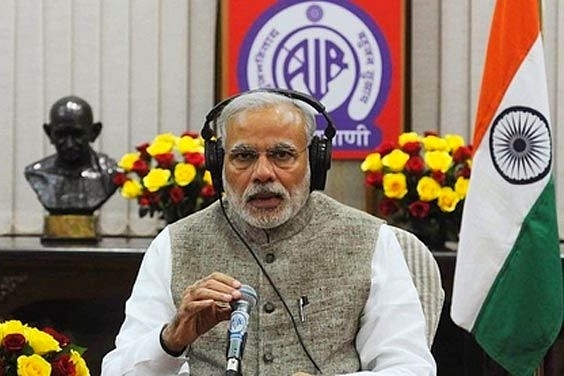
‘It Required Such Harsh Decisions To Keep The People Of India Safe’: PM Modi Apologises For Nationwide Lockdown
Prime Minister (PM) Narendra Modi on Sunday (29 March) during his monthly radio programme 'Mann Ki Baat' appealed to people not to violate nationwide lockdown imposed to fight against COVID-19 pandemic and follow the norms.
The PM apologised for taking harsh steps to contain the spread of the virus and stressed upon "increasing social distancing but reducing emotional distancing."
Referring to the violation incidents, Modi said that the lockdown was for the safety of each individual and his or her family members, and that it would be difficult to control the deadly virus if it spreads.
He also said, "I was extremely hurt when I came to know that some people are misbehaving with those who are being advised home quarantine. We need to be sensitive and understanding."
He said, "Increase social distancing but reduce emotional distancing."
Giving examples of many countries which did not take coronavirus or COVID-19 seriously, Modi said "they are facing the brunt of it".
It was Modi's first 'Mann Ki Baat' address to nation after he announced a 21-day lockdown to break the chain of transmission of the COVID-19 pandemic that has claimed 26 deaths and over 1,000 confirmed cases across the country.
He also sought apology to the people who faced problems due to his sudden announcement of the nationwide lockdown and clarified that it was the "only option" to control the disease which has captured almost across the globe with over 30,000 deaths and more than 6.5 lakh infected persons.
He said, "I apologise for taking these harsh steps which have caused difficulties in your lives, especially the poor people. I know some of you would be angry with me also. But these tough measures were needed to win this battle."
He further said, "The battle against COVID-19 is a tough one and it did require such harsh decisions to keep the people of India safe."
The Prime Minister during the monthly radio programme also talked to some COVID-19 patients, who were treated, and some health experts to share the awareness about the disease among people.
(With inputs from IANS)